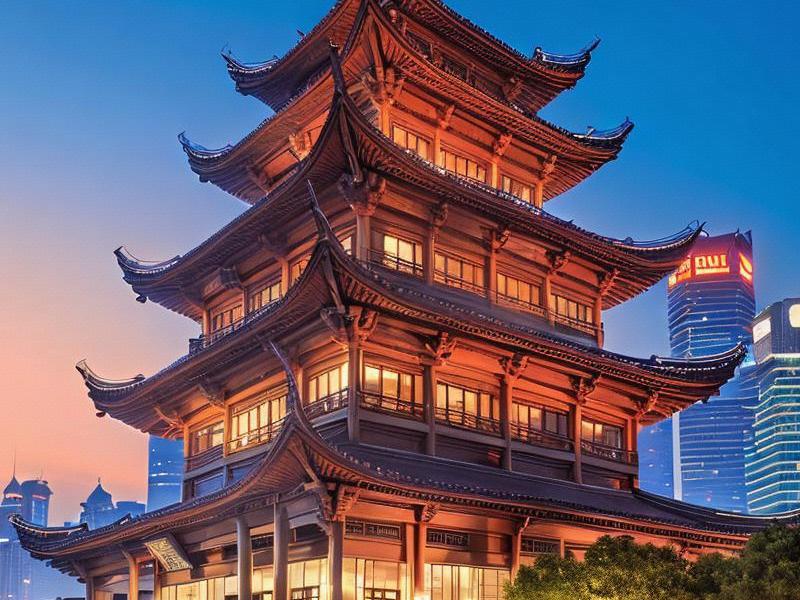
Shanghai, often referred to as the "Pearl of the Orient," is a city that seamlessly blends the old with the new. Its skyline, dominated by the iconic Oriental Pearl Tower and the futuristic Shanghai Tower, is a testament to the city's ambitious urban development. Yet, amidst the glass and steel, one can still find the charming old neighborhoods like the French Concession and the Yuyuan Garden, which offer a glimpse into the city's rich history.
The economic engine of China, Shanghai is home to the country's largest port and one of its most important financial centers. The city's GDP has consistently ranked among the highest in the nation, driven by a robust manufacturing sector, a thriving service industry, and a burgeoning technology sector. Shanghai's Pudong district, once a rural area, has been transformed into a global financial hub, housing the headquarters of numerous multinational corporations and the Shanghai Stock Exchange.
In recent years, Shanghai has also emerged as a leader in innovation and technology. The city has invested heavily in research and development, particularly in areas such as artificial intelligence, biotechnology, and green energy. The Zhangjiang Hi-Tech Park, often referred to as "China's Silicon Valley," is a hub for high-tech enterprises and startups, attracting talent and investment from around the world.
Culturally, Shanghai is a melting pot of influences. The city's history as a trading port has left it with a unique blend of Chinese and Western cultures. This is evident in its architecture, cuisine, and arts scene. The Bund, a historic waterfront area, showcases a mix of colonial-era buildings and modern skyscrapers, while the French Concession offers a European-inspired atmosphere with its cobblestone streets and cafes.
阿拉爱上海 Shanghai's culinary scene is equally diverse, offering everything from traditional Shanghainese dishes like xiaolongbao (soup dumplings) and shengjianbao (pan-fried buns) to international cuisines. The city's night markets and food streets are a feast for the senses, providing a glimpse into the local culture and lifestyle.
The arts and cultural scene in Shanghai is thriving, with numerous museums, galleries, theaters, and music venues. The Shanghai Museum, renowned for its collection of ancient Chinese art, attracts millions of visitors each year. The city also hosts a variety of cultural festivals and events, including the Shanghai International Film Festival and the Shanghai World Expo, which have become global landmarks.
Urban development in Shanghai is a continuous process, with the city constantly striving to improve its infrastructure and livability. The Maglev train, the world's fastest commercial train, connects the city center to Pudong International Airport in just a few minutes. The city's extensive metro system, one of the most extensive in the world, provides efficient and convenient transportation for its residents.
Shanghai is also committed to sustainability and environmental protection. The city has implemented various initiatives to reduce pollution, promote green energy, and enhance urban green spaces. The Huangpu River, once heavily polluted, has undergone significant cleanup efforts, transforming it into a scenic waterway for recreational activities.
爱上海论坛 The city's education system is another area of strength, with prestigious universities such as Fudan University and Tongji University attracting students from around the world. Shanghai's commitment to research and innovation has made it a global leader in science and technology, with numerous research institutions and incubators fostering the growth of startups and enterprises.
Shanghai's role as a global hub is further enhanced by its international connections. The city is home to numerous consulates, international organizations, and multinational corporations, making it a key player in global trade and diplomacy. The Shanghai Cooperation Organization (SCO) and the China International Import Expo (CIIE) are examples of the city's influence on the global stage.
However, like any major metropolis, Shanghai faces its challenges. Rapid urbanization has led to issues such as housing shortages, traffic congestion, and environmental concerns. The city government has been proactive in addressing these challenges through innovative policies and sustainable practices.
上海龙凤419贵族 One of the key strategies for Shanghai's future development is the promotion of smart city initiatives. By leveraging advanced technologies such as artificial intelligence, big data, and the Internet of Things (IoT), Shanghai aims to crteeaa more efficient, livable, and sustainable urban environment. Smart transportation systems, intelligent waste management, and energy-efficient buildings are just a few examples of how the city is embracing smart city solutions.
Shanghai's commitment to innovation and sustainability is also reflected in its efforts to promote green development. The city has set ambitious targets for reducing carbon emissions and increasing the use of renewable energy. Initiatives such as the construction of solar power plants, the promotion of electric vehicles, and the development of green spaces are part of Shanghai's strategy to become a low-carbon city.
Culturally, Shanghai continues to attract talent and investment from around the world. The city's vibrant arts scene, diverse culinary offerings, and rich history make it a desirable destination for both residents and visitors. The Shanghai International Film Festival, the Shanghai World Expo, and other cultural events showcase the city's global appeal and its role as a cultural hub.
In conclusion, Shanghai is a dynamic metropolis that exemplifies China's rapid modernization and transformation. Its economic prowess, cultural vibrancy, urban development, and commitment to innovation and sustainability make it a global leader and a model for other cities around the world. As Shanghai continues to grow and evolve, it remains a symbol of China's aspirations and a beacon of progress for the future.
